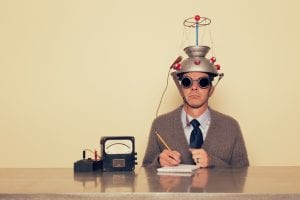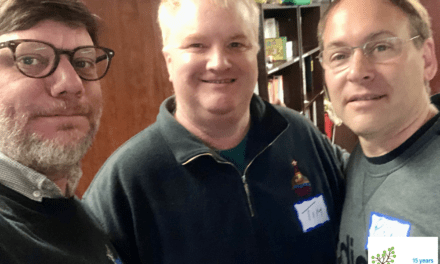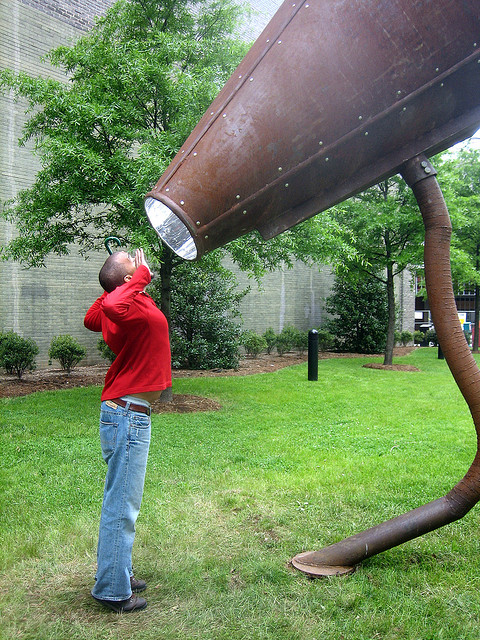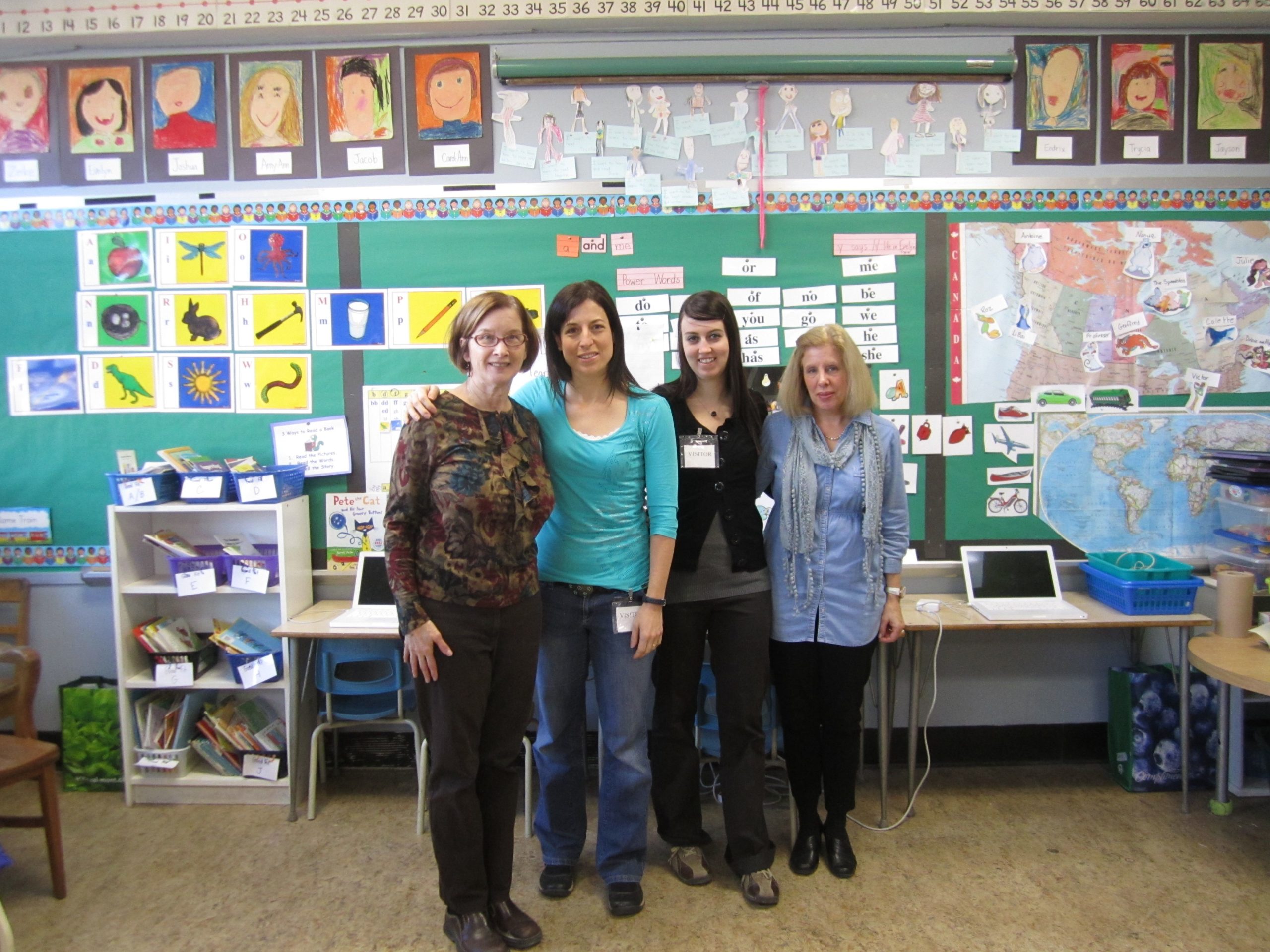
We’ve come a long way since this view of the science educator. Photo: iStock.
Science teaching is a demanding and rapidly changing profession. Our many dedicated Science and Technology teachers work hard to prepare meaningful lessons and develop activities to promote student understanding of the scientific method and the ever-changing natural world. They understand that they have a responsibility to not only “cover” the curriculum content, but also to involve and motivate their students in meaningful learning about the world, especially amid growing concern for our fragile environment and widespread public misunderstanding of the influence that people have on it. Though the principal is the school leader, it is the science consultants who help the teachers change their instructional practices and content required by the new curriculum in science and the new trends in science learning.
In the 1990s as a Science and Mathematics consultant myself, I was always concerned with how to keep up with the latest developments in the field. I met frequently with my fellow consultants. We mulled over the latest curriculum developments, worked together to produce lesson ideas and evaluation instruments and tried to help teachers with meaningful teaching resources.
So how do the consultants do it? How do they encourage and jump-start change in science teaching? And are they effective in making science teaching better? In a recent article, Whitworth et al (2017) reported on the activities of a large and varied number of science consultants in the USA as they went about their work helping and advising science teachers. The respondents were from a variety of US states and school district situations: urban, rural, suburban, school sizes and ethnic backgrounds. There was also a variety of responsibilities. These included science-only (about half) to multiple subject areas – mostly in STEM. The researchers found that consultants indeed do play an important role and “are closely tied to a district’s effectiveness in improving teaching and learning”. Professional development (PD) is one of the principal functions of science consultants – and they are good at it.
There is a large body of research conducted over the past 30 years about what are the common characteristics of effective PD for science teachers.
Here are 3 commonly agreed-on issues that PD should address:
- Teaching and learning the curriculum – how teachers teach and evaluate the curriculum and how students learn it.
- Teacher professionalism – their own knowledge base and interactions within their professional community.
- Teachers as adult learners – keeping up with developing trends in pedagogy and new bodies of knowledge about the natural world.
Additionally, these are the types of activities that PD programs should incorporate:
- Opportunities for active learning
- Collective participation: teachers from different schools, same school to work together.
- Content focus: going deeply into the knowledge base of the curriculum
- Multiple opportunities for practice – over a year or semester at least.
It is widely accepted that PD seldom works if it is only comprised of “one-off” information sessions on professional development days. Hewson et al (2007) warn that
“The various case studies demonstrate that without continuing support during the critical phases of planning, implementing and reflecting on instruction, teachers are unlikely to make major changes in their teaching particularly if these changes require reconsideration of their core beliefs about science, teaching, learning, instruction and/or assessment.” Hewson (2007).
Since teachers themselves must make the changes necessary in their practice, voluntary buy-in is key to successful implementation of change.
Consultants recognize this and know that their ongoing relations with their teachers are very important to their success. Describing the work of science consultants in Quebec, my colleague and I wrote
“Science consultants recognize the importance of forming relationships with their teachers. It is clear to them that positive personal relationships enhance their ability to influence what goes on in the science classroom. They recognize that every teacher goes through ups and downs and they need encouragement to see that their efforts are helping their students learn better. By working with teachers to solve classroom problems, to provide classroom resources, to support with teaching ideas, consultants build trust. This trust allows them into the teacher’s confidence and permits them to become part of the teachers’ school lives. As one consultant points out, ‘You can’t lead from the office. You have to be present in the schools.’ Consultants often meet with science teachers in their schools. Typically this occurs in the teachers’ science workroom or lab during free time – a lunch hour, before school or on a professional development day for example. Usually the topic for discussion is a problem or situation which the science team faces and for which they need input from the trusted expert.” (Elliott & Asghar, 2014)
Teaching science in our schools is complex and difficult. Teachers are always looking for ways to improve student learning, increase student success and make science meaningful. Science consultants are important allies in this endeavour.
References:
Elliott, K., & Asghar, A. (2014). Transformational leadership in science education – A Quebec perspective. In I. M. Saleh & M. S. Khine (Eds.), Reframing transformational leadership: New school culture and effectiveness. Rotterdam, Netherlands: Sense Publishers.
Hewson, P. W. (2007). Teacher professional development in science. In S. K. Abell & N.G. Lederman (Eds.), Handbook of research on science education. London: Lawrence Erlbaum & Associates, Publishers.
Whitworth, B. A., Maeng, J. L., Wheeler, L. B. and Chiu, J. L. (2017), Investigating the role of a district science coordinator. J Res Sci Teach, 54: 914–936. doi:10.1002/tea.21391






Many good points made here regarding the work done by consultants. On-going support for teachers from consultants is key to effective professional development and curriculum implementation. During the one year experience working in an educational services department, I couldn’t help but notice that the best of my colleagues devoted much time and energy toward creating professional relationships building networks with teachers.